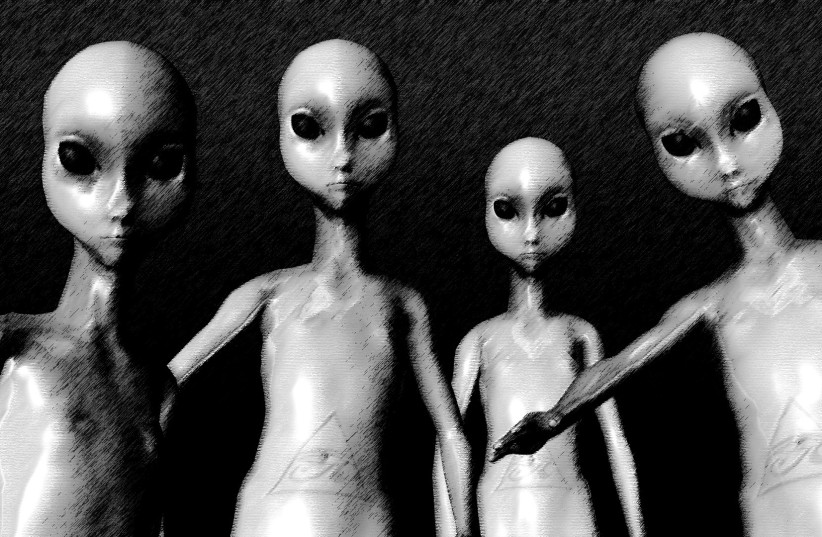Rosh Hashanah, New Year on the Jewish calendar, has arrived. It is also said to be the anniversary of the world’s creation described in the opening of the Torah, assumed to be full of mysteries and metaphors.
It is not clear what the Torah means by “world.” Is it the sun and its neighborhood – the planets with their moons? Does it include our galaxy, the Milky Way, or also the universe?
The observable universe is smaller and perhaps much smaller than the universe, since some astronomical structures are too far for their electromagnetic signals to have reached our instruments. It is assumed to include about 10 sextillion stars and somewhat fewer planets. The current estimate is that there are several hundred billion galaxies. The farthest observable galaxy is about 33.4 billion light years from Earth. The Milky Way is assumed to have about 100 billion to 400 billion stars and possibly tens of billions of planets of various types and sizes. It would be disrespectful to assume that the Creator wasted the above immense energy, matter, huge structures, and vast space for no purpose.
UFOs and Judaism: What do rabbis think of aliens?
There continue to be many claims of sightings of unidentified flying objects (UFOs), and in 2022-2023 there were hearings in the US Congress about the subject. It is natural to ask what is Judaism’s view on this.Only our ego and ignorance would insist that life exists solely on Earth. For a very long time, Western culture and some Jewish scholars believed in a geocentric world. Maimonides (1135-1204) opposed that view. Copernicus (473-1543) and Galileo (1564-1642) proposed that the Earth is in a heliocentric system, with the Earth and nearby planets rotating around the sun. Galileo was tried by the Inquisition, put under house arrest, and considered a heretic. Unlike some Jewish thinkers such as Saadia Gaon (892-942), Maimonides stated that the world is not anthropocentric and was not created for man alone.
The Torah and Halacha deal with humanity and other Earth-related issues. It can’t be assumed that intelligent life exists only on our planet because the Torah does not mention life elsewhere. Hopefully, normative Judaism accepts the possibly and even likelihood that there may be varying types of intelligent species and civilizations in the universe, some perhaps much more advanced than us.

The biblical story of the flood shows that were it not for Noah having been righteous in his age, all life on land would have been destroyed. Possibly other cosmic places where life may flourish were created with the knowledge that many or most may have to be destroyed and backups are needed. It is a Jewish belief that over 900 worlds were created and destroyed. Life forms on Earth were wisely created with the propensity to evolve over time, especially over very long periods. The Creator may have established cosmic scientific rules which enable the universe to also evolve and, over extended periods, possibly spontaneously create life forms. With such a dynamic universe, the Creator could have rested peacefully on the cosmic Sabbath, assured that Creation will maintain its momentum perhaps to eternity.
One is led to ask if possibly extraterrestrial species were also given a document like the Torah and if they have holy places like Jerusalem in their realms. Scientists are rapidly gaining knowledge about the universe. One day we may indeed encounter extraterrestrials via UFO visits to Earth, in neutral territory in the universe or perhaps even where those beings are centered. Such a cosmic meeting would have an unprecedented effect in general and also on Judaism. At first glance, interaction with extraterrestrials seems to be impossible due to the vast distances. But a cosmic structure, the wormhole, has been proposed which could provide short passageways between enormously distant places in the universe and even among places in possible parallel universes.
It would be fitting to discuss such themes in Jewish circles, especially around Rosh Hashanah. Judaism developed a very high-resolution super-telescope rear view mirror. With it, we constantly study the lives of the great figures in the Torah and major biblical events in intricate detail. Other major religions too are almost solely past focused. We also need to look at the world via the side windows at the present such as the environment, climate, and via the windshield at the near and far future as well as way past our planet and its region, even at very distant cosmic regions and their potential inhabitants.
Those interested in Jewish views on the various issues concerning humanity’s role in the universe and about extraterrestrials would be interested to read Rabbi Professor Dr. Norman Lamm’s essays “Man’s Position in the Universe” and “The Religious Implications of Extraterrestrial Life” in the book Faith and Doubt: Studies in Traditional Jewish Thought (1971, updated in 2006). ■
Larry Pfeffer was born in Budapest, where he survived the Holocaust and later escaped to America, where he worked in software before making aliyah with his family.
